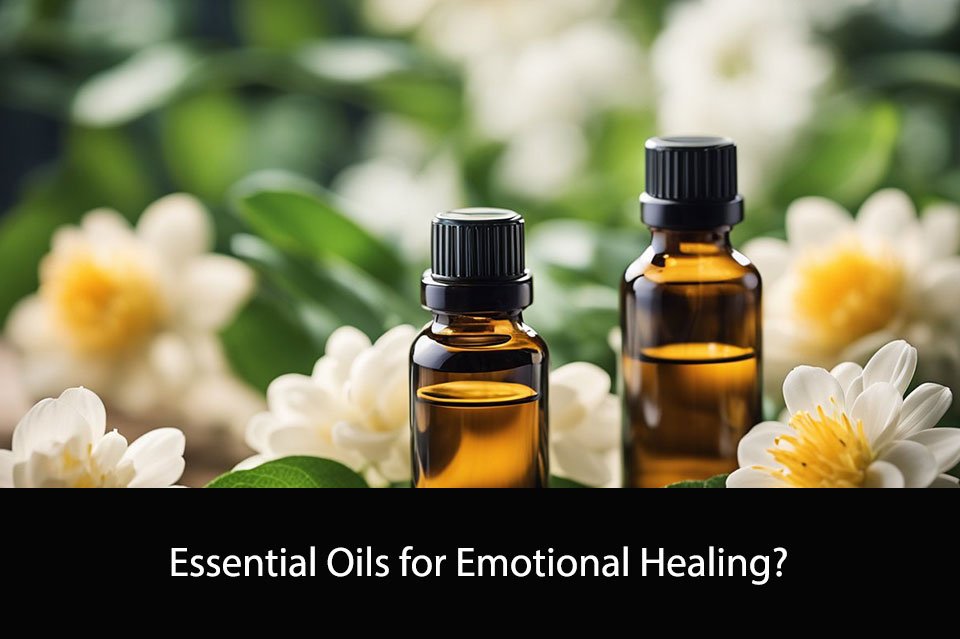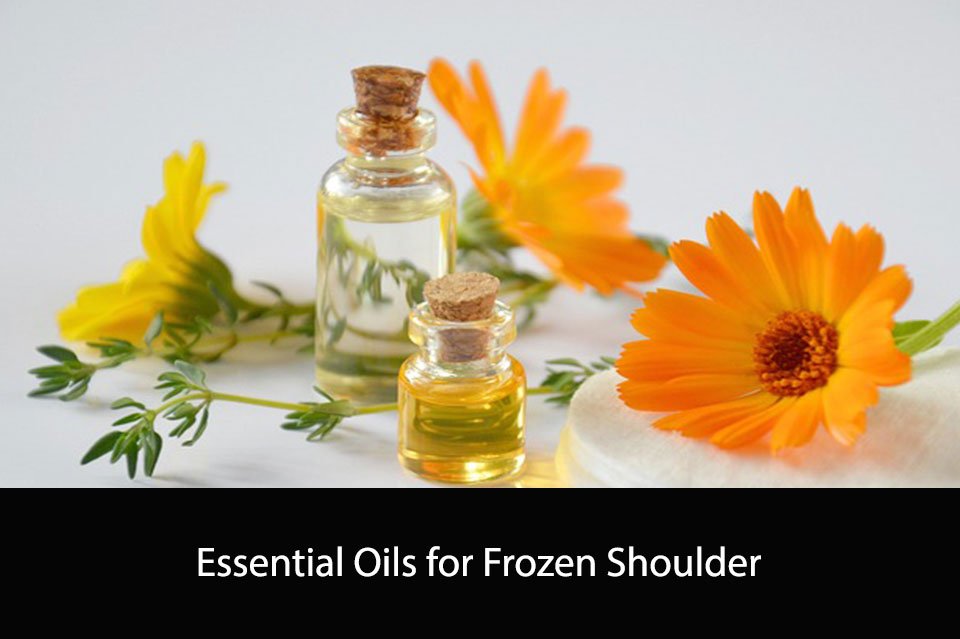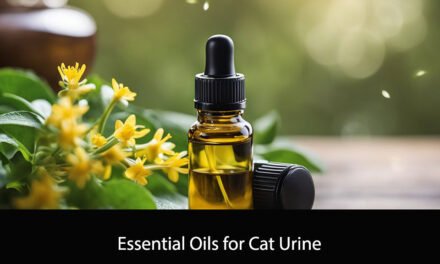Essential oils have been used for thousands of years to promote physical, emotional, and spiritual well-being. These oils are derived from plants and are highly concentrated, making them a potent tool for healing and transformation. In recent years, essential oils have gained popularity for their ability to support emotional health and well-being, with many people turning to them for relief from stress, anxiety, and other emotional challenges.
When it comes to emotional healing, essential oils can be a powerful tool. Different oils have different properties and can be used to promote feelings of calm, relaxation, and positivity. Some oils are particularly effective for specific emotional challenges, such as grief, anger, or fear. By incorporating essential oils into our daily self-care routine, we can support our emotional health and well-being and experience greater balance and harmony in our lives.
Understanding Essential Oils

Essential oils are highly concentrated plant extracts that have been used for thousands of years for their therapeutic properties. These oils are extracted from various parts of the plant, such as the leaves, flowers, bark, and roots, and are known for their ability to promote emotional healing.
One of the key benefits of essential oils is their ability to affect the limbic system, which is the part of the brain responsible for emotions, memories, and behavior. When inhaled or applied topically, essential oils can help to regulate emotions, reduce stress and anxiety, and promote a sense of calm and relaxation.
It is important to note that essential oils should be used with caution, as they are highly concentrated and can cause skin irritation or other adverse reactions if not used properly. It is also important to use high-quality, pure essential oils, as synthetic oils or oils that have been adulterated with other substances may not have the same therapeutic benefits.
Some popular essential oils for emotional healing include lavender, bergamot, chamomile, ylang-ylang, and frankincense. Each of these oils has its own unique properties and can be used alone or in combination with other oils to create a blend that is tailored to your specific needs.
Overall, essential oils can be a powerful tool for emotional healing when used properly and with respect for their potency. With a little bit of knowledge and experimentation, you can discover the benefits of these natural remedies for yourself.
Emotional Healing and Its Importance
Emotions are a natural and essential part of being human. However, sometimes we experience emotions that are intense and overwhelming, which can affect our mental and physical well-being. Emotional healing is the process of acknowledging and addressing these emotions to promote inner peace and balance.
Emotional healing is crucial for our overall health and well-being. Unresolved emotions can lead to stress, anxiety, depression, and other mental health issues. They can also manifest physically, causing headaches, muscle tension, and other physical symptoms.
Using essential oils for emotional healing can be an effective and natural way to support our emotional well-being. Essential oils can help calm the mind, reduce stress and anxiety, and promote relaxation. They can also help uplift the mood and promote a sense of joy and positivity.
Incorporating essential oils into our daily routine can support our emotional healing journey. Whether it’s through diffusing oils, applying them topically, or incorporating them into self-care practices like meditation or yoga, essential oils can be a powerful tool for emotional healing.
Essential Oils for Emotional Healing

When it comes to emotional healing, essential oils can be a powerful tool. They can help us manage stress, anxiety, and depression, and promote feelings of calm and well-being. Here are some of the most effective essential oils for emotional healing:
Lavender
Lavender is one of the most popular essential oils for emotional healing. It has a calming and relaxing effect on the mind and body, and can help reduce feelings of anxiety and stress. Lavender oil can be diffused, applied topically, or added to bathwater for a soothing and restful experience.
Frankincense
Frankincense is another essential oil that is known for its calming and grounding effects. It can help reduce feelings of anxiety and depression, and promote a sense of inner peace and tranquility. Frankincense oil can be diffused or applied topically to help calm the mind and body.
Ylang Ylang
Ylang Ylang is a sweet and floral essential oil that is often used to promote feelings of relaxation and calm. It can help reduce feelings of anxiety and stress, and promote a sense of well-being. Ylang Ylang oil can be diffused or applied topically to help promote emotional balance.
Bergamot
Bergamot is a citrusy essential oil that is known for its uplifting and energizing effects. It can help reduce feelings of anxiety and depression, and promote a sense of happiness and well-being. Bergamot oil can be diffused or applied topically to help boost mood and energy levels.
Chamomile
Chamomile is a gentle and soothing essential oil that is often used to promote feelings of relaxation and calm. It can help reduce feelings of anxiety and stress, and promote a sense of inner peace and tranquility. Chamomile oil can be diffused or applied topically to help calm the mind and body.
Incorporating these essential oils into your daily routine can help promote emotional healing and well-being. Remember to always dilute essential oils before applying topically, and consult with a healthcare professional if you have any questions or concerns.
How to Use Essential Oils for Emotional Healing

When it comes to using essential oils for emotional healing, there are three main methods of application: topical application, aromatherapy, and ingestion. Each method has its own benefits and drawbacks, and it’s important to choose the one that works best for you.
Topical Application
Topical application involves applying essential oils directly to the skin. This method is best for localized pain or emotional issues, such as anxiety or stress. To use essential oils topically, simply mix a few drops with a carrier oil, such as coconut or jojoba oil, and apply to the affected area. You can also add essential oils to a warm bath or foot soak for a relaxing and rejuvenating experience.
Aromatherapy
Aromatherapy involves inhaling the scent of essential oils. This method is best for overall emotional wellbeing and can be done in a variety of ways, such as using a diffuser, adding essential oils to a bowl of hot water, or simply inhaling the scent directly from the bottle. Aromatherapy can help reduce stress, improve mood, and promote relaxation.
Ingestion
Ingesting essential oils involves adding them to food or beverages, or taking them in capsule form. This method should only be done under the guidance of a qualified healthcare professional, as some essential oils can be toxic when ingested. Ingesting essential oils can help with digestive issues, boost the immune system, and promote overall wellbeing.
Overall, using essential oils for emotional healing can be a powerful tool in promoting overall wellbeing. By choosing the right method of application and using essential oils safely and responsibly, you can experience the many benefits of these natural remedies.
Safety Precautions When Using Essential Oils
When using essential oils for emotional healing, it is important to take certain safety precautions to avoid any adverse reactions. Here are some guidelines to follow:
- Dilute essential oils: Undiluted essential oils can be too strong and cause skin irritation or other adverse reactions. We recommend diluting essential oils with a carrier oil such as jojoba, coconut, or almond oil before applying them topically. The general rule of thumb is to use 1-2 drops of essential oil per teaspoon of carrier oil.
- Perform a patch test: Before using a new essential oil, perform a patch test to check for any allergic reactions. Apply a small amount of diluted oil to the inside of your wrist or elbow and wait 24 hours to see if there is any redness or irritation.
- Avoid sensitive areas: Essential oils should not be applied to sensitive areas such as the eyes, ears, nose, or genitals. If you accidentally get essential oil in any of these areas, immediately flush with a carrier oil or milk and seek medical attention if necessary.
- Use caution during pregnancy: Some essential oils can be harmful during pregnancy or nursing. We recommend consulting with a healthcare professional before using any essential oils during this time.
- Store essential oils properly: Essential oils should be stored in a cool, dry place away from direct sunlight. Keep them out of reach of children and pets.
By following these safety precautions, you can enjoy the benefits of essential oils for emotional healing while minimizing the risk of adverse reactions.
Scientific Studies Supporting Emotional Healing Through Essential Oils
We have found several scientific studies that support the use of essential oils for emotional healing. Here are a few examples:
- A study published in the Journal of Alternative and Complementary Medicine found that inhaling lavender essential oil can significantly reduce anxiety levels in patients undergoing open-heart surgery. The study concluded that lavender oil can be an effective and safe alternative to traditional anxiety-reducing medications.
- Another study published in the Journal of Psychiatric Research found that inhaling bergamot essential oil can help reduce symptoms of depression and anxiety in patients with chronic pain. The study suggested that bergamot oil can be a useful addition to traditional treatments for depression and anxiety.
- A study published in the Journal of Clinical Nursing found that massage therapy using essential oils can significantly reduce symptoms of anxiety and depression in elderly patients with dementia. The study concluded that massage therapy with essential oils can be a safe and effective way to improve the emotional well-being of elderly patients with dementia.
Overall, these studies suggest that essential oils can be a useful tool for emotional healing. However, it is important to note that more research is needed to fully understand the effects of essential oils on emotional health. As with any alternative treatment, it is important to consult with a healthcare professional before using essential oils for emotional healing.
Conclusion

In conclusion, we have explored the benefits of essential oils for emotional healing. We have seen that essential oils have been used for centuries to promote emotional well-being and that they can be a powerful tool for managing stress, anxiety, and depression.
We have discussed some of the most effective essential oils for emotional healing, including lavender, bergamot, chamomile, ylang-ylang, and frankincense. We have also outlined some of the different ways in which essential oils can be used, such as aromatherapy, massage, and topical application.
It is important to remember that essential oils are not a cure-all for emotional issues, and that they should be used in conjunction with other therapies and treatments. However, when used correctly, essential oils can be a valuable addition to any emotional healing regimen.
We encourage you to explore the world of essential oils and to experiment with different oils and applications to find what works best for you. With their natural healing properties and soothing aromas, essential oils can be a powerful tool for promoting emotional well-being and overall health.
Frequently Asked Questions
What essential oils are good for emotional health?
Several essential oils are known to promote emotional well-being. Some of the most popular ones include lavender, chamomile, bergamot, ylang-ylang, frankincense, and peppermint. These oils can help reduce stress, anxiety, and depression, promote relaxation, and improve mood.
What oil is good for emotional support?
One of the best essential oils for emotional support is lavender oil. It has a calming and soothing effect on the mind and body, making it ideal for reducing stress and anxiety. It can also help improve sleep quality and promote relaxation.
What essential oil blends for emotional support?
There are many essential oil blends that can support emotional well-being. Some popular blends include:
- Serenity blend: lavender, marjoram, Roman chamomile, and ylang-ylang
- Balance blend: spruce, ho wood, frankincense, blue tansy, and blue chamomile
- Joy blend: bergamot, ylang-ylang, geranium, lemon, coriander, tangerine, jasmine, Roman chamomile, palmarosa, and rose
What essential oils uplift your mood?
Citrus oils such as lemon, grapefruit, and orange are known for their uplifting properties. Peppermint and rosemary are also great for improving mood and increasing energy levels. Additionally, frankincense and ylang-ylang can help reduce stress and promote relaxation.
How to use essential oils for healing?
There are several ways to use essential oils for healing, including:
- Diffusing: Add a few drops of essential oil to a diffuser and breathe in the aroma.
- Topical application: Dilute essential oils with a carrier oil and apply to the skin.
- Bath: Add a few drops of essential oil to a warm bath and soak for 15-20 minutes.
Best essential oils for wound healing?
Tea tree oil is one of the best essential oils for wound healing. It has antiseptic and anti-inflammatory properties that can help prevent infection and promote healing. Lavender oil is also great for wound healing, as it has antiseptic, anti-inflammatory, and analgesic properties.





